Dental Crowns Treatment

Your Simple Guide to Dental Crowns in Dubai
There are so many reasons behind tooth damage, but only few effective solutions can restore the natural look and function of teeth. One popular restorative procedure that could be chosen for you is having a dental crown, it is a “cap” that will help you cover up several issues like having a broken tooth, or support weak teeth and several other conditions.
What Do You Need To Know Before Dental Crowns Treatment Starts?

Why Would I Need a Dental Crown?
You might be in need to visit your dentist to have a dental crown placed over a tooth if you have one of these conditions:
- If you have a large cavity that cannot be fixed with a filling.
- If you have had a root canal treatment.
- Having teeth that are worn down, or tooth enamel erosion.
- If you have a filling that has been placed for too long and is prone to fracture.
- Having weakened teeth that need support to prevent severe damage.
- A dental crown helps in covering a dental implant, or anchoring a dental bridge.
- You might also need a dental crown if you want to enhance the appearance of chipped teeth, or severely discolored teeth.
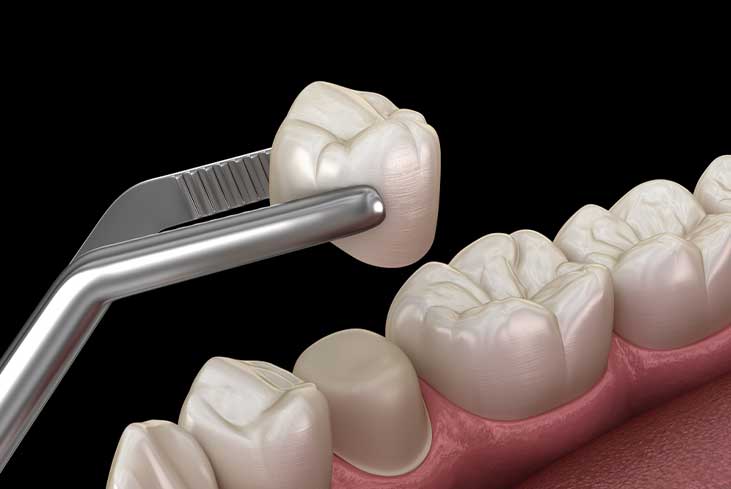
What are the Pros of Dental Crowns?
Dental crowns can support teeth and save them from complete damage, and in spite of it being a restorative procedure, it has many aesthetic advantages as well, because it can fix issues related to the appearance of teeth such as discoloration, chipping, and misalignment.
And because dental crowns help protect and support teeth in various conditions, they are considered a highly durable option as the results can be maintained up to 15 years.

What are the Types of Dental Crowns?
There are several types of dental crowns, classified according to the materials used to make them. These types include:
1- Porcelain crowns: one of the most popular and commonly used types of crowns are the all porcelain crowns, as they have the opaque shine and natural color and shape of teeth. They are biocompatible (which means that they do no harm to the surrounding tissue), also they do not cause any allergic reaction.
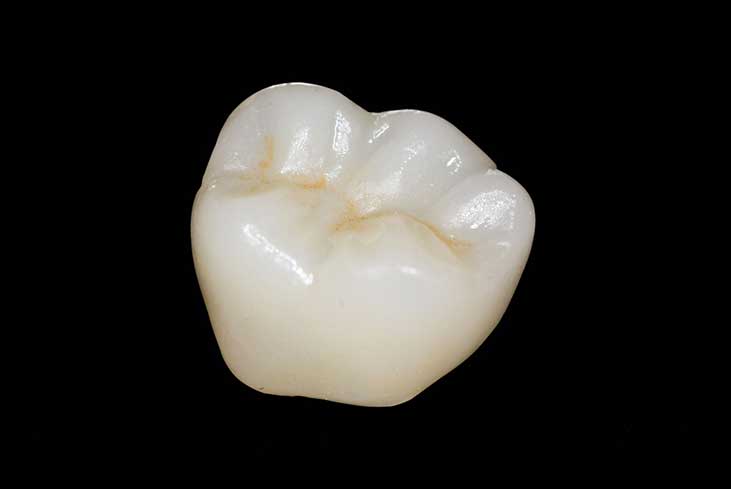
2- Ceramic crowns: this type is especially suitable for those who want their crowns to have a natural and aesthetically pleasing look. Ceramic crowns are a good option for those who have allergies.
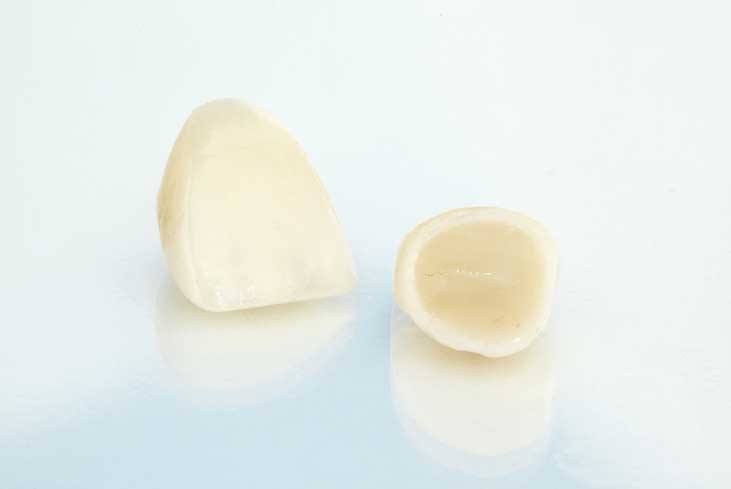
3- Porcelain fused to metal crowns (PFM): in the case of severe tooth decay, this type can be considered a great solution, as they offer a highly durable, affordable and natural looking replacement or cover up for the damaged teeth. Because of the different types of strong materials that can be used in making the Porcelain fused to metal crowns (PFM) such as gold alloys, titanium alloys, cobalt alloys, they are the strongest against cracks or fractures, not only that but they also are stain-resistant.
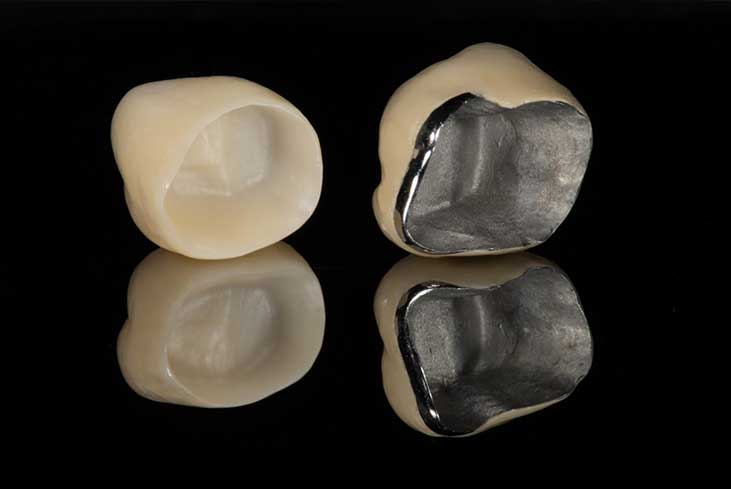
4- All resin crowns: when it comes to all resin crowns, there is the advantage of the very reasonable price, but this type does not guarantee the patient great durability against fracture or cracks.
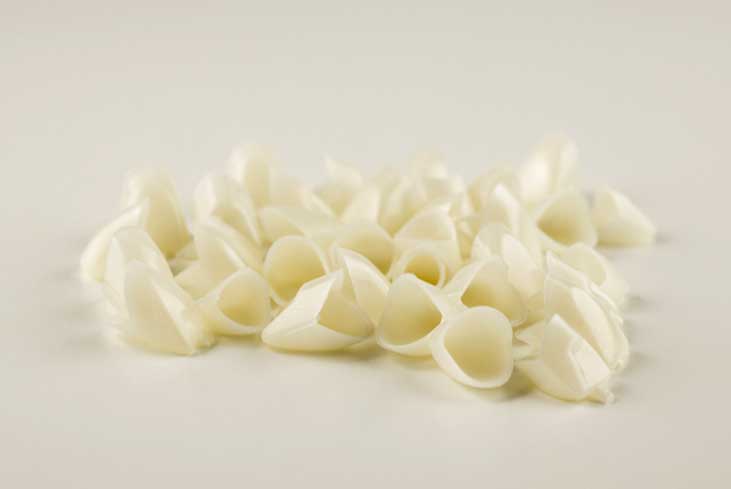
5- Zirconia crowns: this aesthetically-appealing type of crowns has similar characteristics to the porcelain crowns, it is durable and it is less likely to cause some allergic reaction in comparison with other types like the stainless steel crowns. They are categorized as biocompatible too.
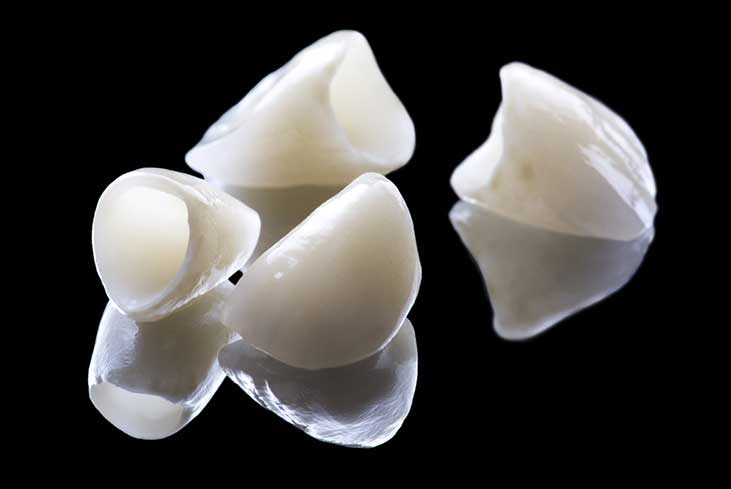
6- Stainless steel crowns: these crowns can be used as a temporary measure, and in spite of them being popular, the material can cause allergies. Stainless steel crowns can last up to 4 years.
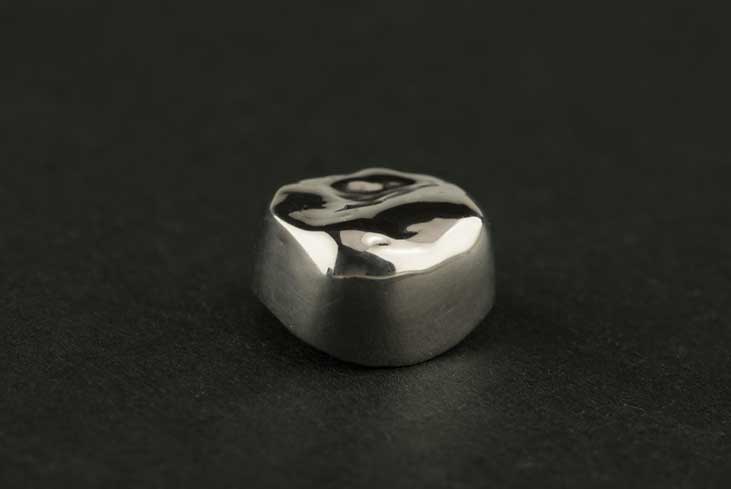
What Do You Need To Know During Dental Crowns Treatment?

What are the Steps of the Procedure?
To have a permanent crown placed, every patient need two visits to the dentist.
The first visit to the dentist will consist of these four steps:
- Taking an X-ray of the teeth and jawbone might be necessary ahead of the procedure in order for your dentist to evaluate your condition, some patients will need a root canal treatment before going ahead with the dental crown procedure.
- The next step after making sure the teeth are ready for the treatment is to start reshaping the tooth, so that the crown can be fitted. The amount of change to the shape depends on the type of dental crown that will be used, and the amount of damage, because in the cases of severe decay, a filling might be needed, so there can be enough structure for the crown to be placed on.
- After teeth/tooth reshaping is done, an impression will be made to make a dental crown that blends naturally with the rest of the teeth.
- The final step of the first visit is the placement of the temporary crown, to ensure the tooth is not left unprotected.
The second visit to the dentist will entail:
Removing the temporary crown is the final step before the permanent crown placement, with the use of special adhesive, this is done by performing local anesthesia.
What do you need to know after Dental Crowns treatment finished?

What are the Aftercare Tips?
In order to keep any type of dental crowns in a proper conditions, and to ensure longevity, you should follow some essential steps such as brushing and flossing regularly, it is important to avoid certain foods that contain damaging components such as artificial sugary drinks, avoid excessive consumption of coffee, tea and wine as they change the pigmentation of the teeth.
For this procedure specifically you should be careful with the hard foods, candies, chewy and sticky foods, some types of crowns are more prone to wear and crack than other such as all resin crowns, so you should pay even more attention if you have an all resin crown placed over your tooth.
Foods that are too hot or too cold will also cause sensitivity if you have dental crowns.
Conclusion
The procedure of having a dental crowns is an effective and highly durable option in the cases of teeth damage or decay, it is important to consult your dentist to know better about your own case, and what type of dental crowns is best suited for you.
5 min Read | Updated October 10, 2023
Written by Dr. Gabriella Aftene
Dr. Gabreilla started her career at the University of N. Testimiteanu Medicine and Pharmacy, she went on to continue her studies at the University of Carol Davila Medicine and Pharmacy. She continued her education in Germany Frankfurt, Italy Genoa, Spain Seville, Portugal Lisbon and France Lyon.
Topics: Dental Crowns
Our aim of this article is to spread awareness about general oral health, We do not consider all the information and the advice presented a substitute for consulting your dentist. Therefore, We would like to invite you to visit GYA Dental Center to know more about dental treatments, we will be happy to provide the best consultation regarding your case.
